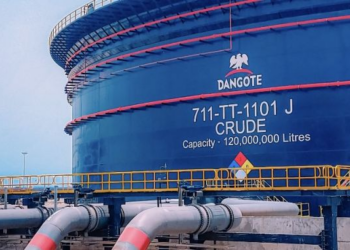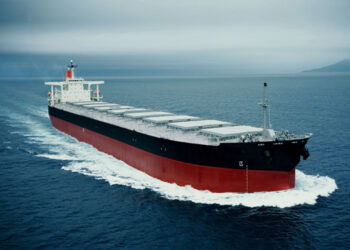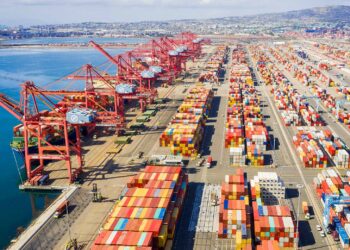The President of Nigeria, Muhammadu Buhari, has presented a supplementary budget of N4 trillion to cover the cost of importing Premium Motor Spirit (PMS) for the fiscal year 2022. That request has been approved
Background
Nigeria is an oil-producing and exporting nation, and it owns four refineries. Still, at the moment, none of the local refineries is operational at even half of nameplate capacity. Thus, Nigeria has to import PMS.
Crude oil is priced in United States Dollars. Thus, when Nigeria sells crude oil to the Netherlands, she earns USD, but she pays in USD when Nigeria imports PMS from the Netherlands. Therefore, one would naturally assume that these exports of crude and imports of oil will even out, but they don’t; Nigeria has seen a fall in output of crude oil and an increase in the PMS imports. This means that the cost of importing PMS on a net basis is rising.
Let’s talk about the subsidy
Currently, the Nigerian National Petroleum Corporation Ltd (NNPC) fixes the retail price of PMS sold at the pumps in Nigeria; however, as the cost of crude oil rises, importing PMS from the Netherland also rises. The PMS subsidy is intended to pay the difference between the landed price of PMS at the Nigerian ports and the retail price of PMS sold at the Nigerian pumps.
Whenever the revenues from the sale of Nigerian crude do not cover the expense of the imports of PMS, the NNPC calls this undercover. This means every increase in the crude oil price will imply an increase in the landed cost; if the NNPC does not raise the retail price of PMS, and thus undercover will increase. If the pump price is N100 a litre, but PMS imported from the Netherlands lands at the Nigerian ports at N300 a litre, the NNPC will debit that account where it holds the revenues from selling crude oil to the Netherlands by N200.
Thus, we have three key elements.
- Crude oil price: if higher, Nigeria earns more USD
- PMS price: if higher, Nigeria will pay more USD
- If the retail price is set below the landing cost, the retail pump price is under-recovery.
Of these three, the only variable Nigeria has complete control over is the retail pump price. Crude oil prices are set internationally, and Nigeria has OPEC quotas to contend with.
PMS is used mainly by cars and SMEs to power their power generating sets. If fuel prices rise, it leads to inflation as the cost of transportation to convey food goes up. A rise in PMS also leads to a higher cost of production as SMEs generally power their cottage industries with PMS. Thus, lower energy costs are essential to maintaining a low cost of local production and creating a job. The decision of the Federal Government to subsidize imported PMS is correct and expensive. Let’s ignore, for now, the fraud in the subsidy regime and inefficiencies in the NNPC and port.
Can we do subsidy cheaper?
Is there a better and cheaper way of ensuring that Nigeria can reduce the under-recovery amount it pays on PMS imports? Yes, there is; it involves adjusting the three elements to pay the subsidy at the pumps, not the ports.
Nigeria pays a subsidy by calculating the landed cost at the port. This implication is that any PMS cleared can be smuggled out of Nigeria and resold at a considerable cost to taxpayers. Below is a way to have a means-tested method to pay the subsidy.
First, implement deregulation of the ecosystem. Let NNPC Ltd or the regulator created by the Petroleum Industry Act (PIA) publish the import quality and grade of PMS to be sold in Nigeria.
Next, allow all players that want to import and sell PMS in Nigeria to do so at ANY price they deem fit; in essence, let the market determine the retail prices.
Next, set an income limit for the qualification of subsidy. Attach subsidy to a NIN issued phone and peg it at N5,000 per phone. Since NIN has biometrics, each phone user has an N5,000 limit.
Use the eNaira for subsidy payment receipts and payments. Thus, if I am in Ohafia and want to buy PMS at the subsidized price, I drive my motorcycle to a filling station and pay the attendant via my eNaira wallet to their wallet. The station will use those eNaira credits and pay the supplier of the PMS, claiming the total cost on his invoice, sort of a reverse VAT, until it flows back to the importers, who can file a claim with the NNPC. For transporters, they link not their phone, but the Vehicle VIN to the NIN enabled company account, thus allowing them to buy fuel at subsidized prices.
Why is this better?
- All transactions are made in Nigeria via NIN phones, meaning the payments are verifiable, traceable, and auditable.
- By capping the maximum that can be purchased at N5,000, it’s an indirect subsidy to low-income household
- Also reduced imported inflation as transportation costs will not increase even if there is under recovery
This means that the only way to enjoy the cheap Nigeria PMS is to pay with a NIN enabled phone to an eNaira wallet at a Nigerian pump. Since the NIN is biometrically secured, it eliminates multiple users signing up. Such a policy can be set up almost immediately. Nigeria had experience in this regard as farmers a few years ago could buy subsidized fertilizers using their phones.
This policy can run concurrently with full market-based pricing of imported and locally refined PMS. It allows more flexibility, the N5,000 can be increased or reduced, or NIN replaced with income tax receipts.




















Instead of you to just write about these as Ponzi schemes you should investigate why they failed. 86z for example blamed flutter wave a company that controls their payment platform. They said their account was freezed by the government in collaboration with flutterwave.
You should also ask who registered such companies. Those in corporate affairs commission who registered these companies should be held responsible because such registration gives the company more confidence in the eyes of the victims.
If this is true, then the government is responsible for the crashing of this platform.
Once this company crashed these money now belongs to the government with no intention of returning it back to the so called victims the government is trying to protect.
This makes me believe those in government who interfere in such schemes do it intentionally just to crash it and say well it was a Ponzi scheme.
When nothing is broken then you don’t need to fix it.